Defining and delivering an easy way to schedule meditation sessions from your workspace Case Studies
Mindku is a meditation app currently on the MVP stage that allows teams to run group meditations and measure how it helps them to feel better.
The founders of Mindku had been practicing meditations for a long time before realizing that it can be a strong instrument for teams to overcome stress, stay more productive and solve the problem of socialization in remote companies.
Having a positive experience of running group meditations in their teams, the founders decided to develop an online tool and Slack application that will help other teams meditate together. Our goal was to build a simple application so that the client could validate their idea and raise funding for further development.
Usually, clients come to us with the idea of an app they believe in, and a part of our work is proposing, not only the technical approach, but user experience, user flows, and product strategy.
As usual, having the full list of features, our job was to estimate the amount of work and help the client to define “must-have” features to include in the MVP. For this, we created a Google Sheets table, described features in the User story format, estimated every User story, and gave them an option of priorities. Having this table, our client could play with the “Priority” column to see how it influenced the total cost of the app and the timelines.

When the estimates were done and we agreed on the scope of work that fit the budget, we started setting up the environment for transparent communication, project management, and development:
We had regular communication with the client daily in order to understand every tiny detail of the project’s vision, and tried to look at the app idea through their eyes. When everything was set up, we moved to the development stage.
At first, we designed the project architecture consisting of the next logical parts:
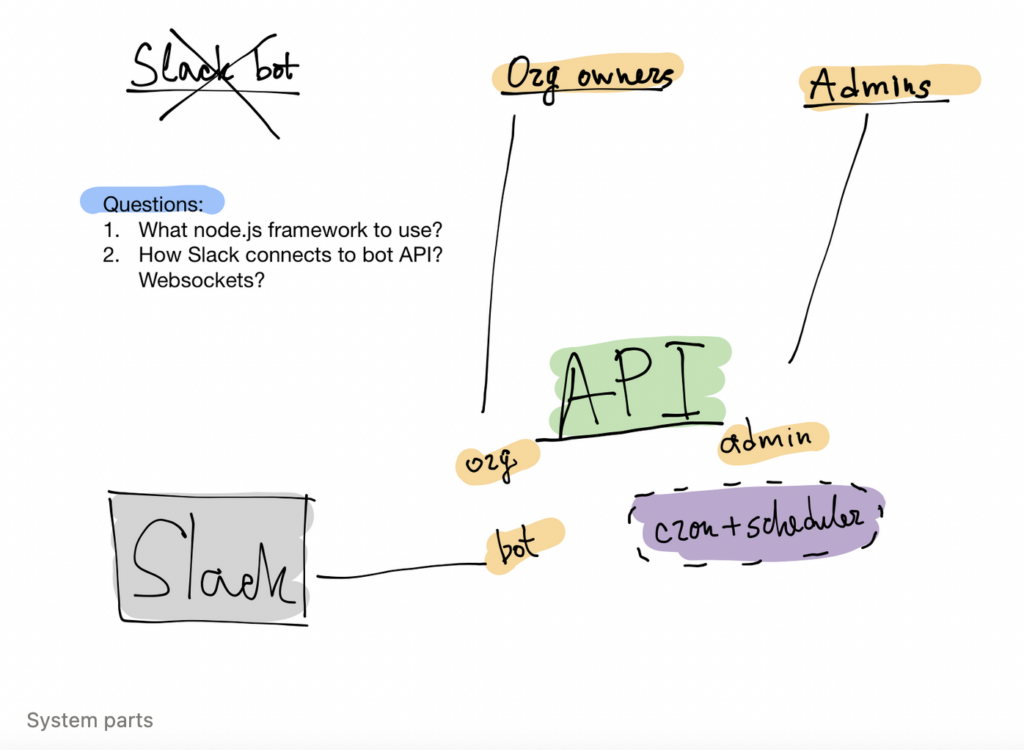
Our main challenge was to find a solution to make all systems work together, especially an integration between Slack and the web application, and creating a clear user flow. For this, we developed a Proof of Concept that was based on the flow listed below.
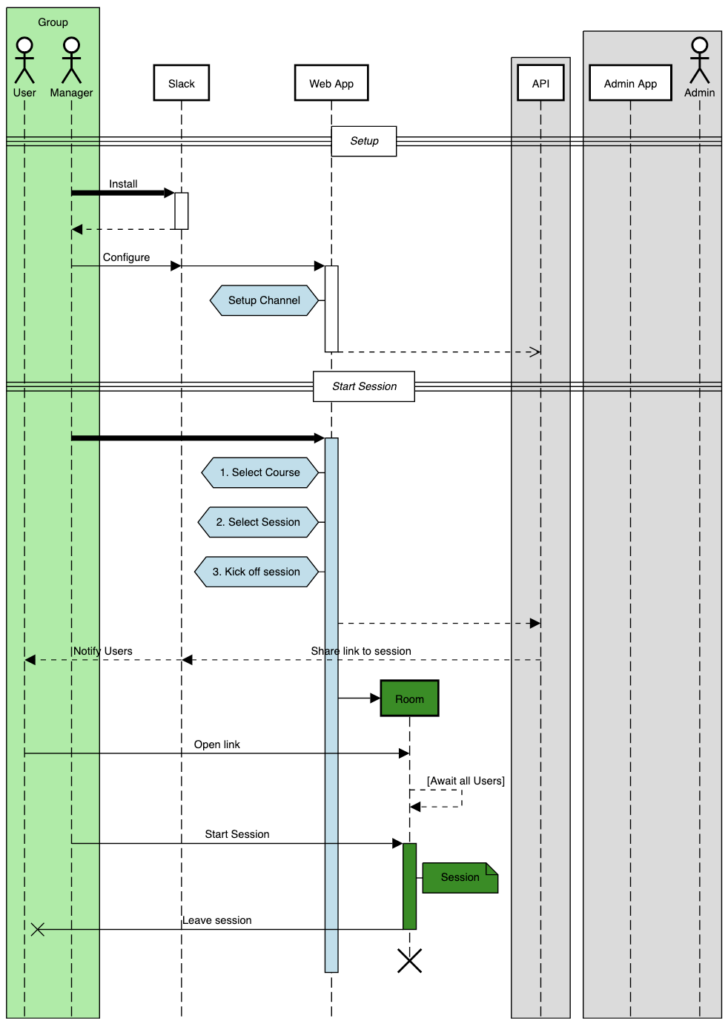
Such a visualization helped us to show the Mindku team how the system will work and saved us time instead of writing long-form documentation.
In order to stay synchronized and be flexible for changes, we agreed to make frequent releases to development and production environments and communicate every day. Intensive communication and the possibility to regularly see the result of our work helped us build trust with the client.
During this stage, we began working on the next features of the app:

At the end of that stage, we finished the initial user flow, which was resolving the core project idea, and we asked the client to test it right away.
While the app had been tested by the client, we focused on the Analytics part of the application. It’s crucial for every MVP to collect metrics and analyze them. We worked on statistics so that in the future the client could collect information like:

Besides, we were working on the admin panel improvements while the app had been being tested by the client.
Despite the limited time and budget, our goal was to deliver a logically finished and working solution, so we were synchronizing very often about time spent on every task and what we could improve for the rest of the time.
As a result, the next improvement had been made:
All these changes influenced the final version of the MVP, provided a better user experience, and automated routine actions.
In a couple of days, the client got back to us with finalized design mockups and some new ideas about the user flow improvement. Being inspired by one of the popular Slack apps, we decided to make some changes in the user flow and polish features.
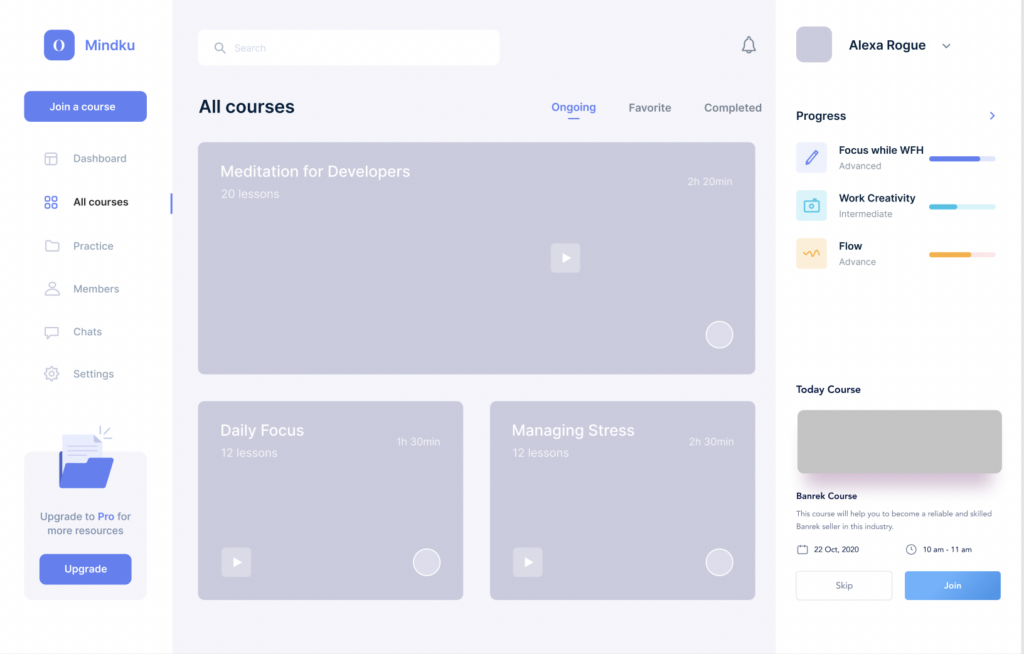
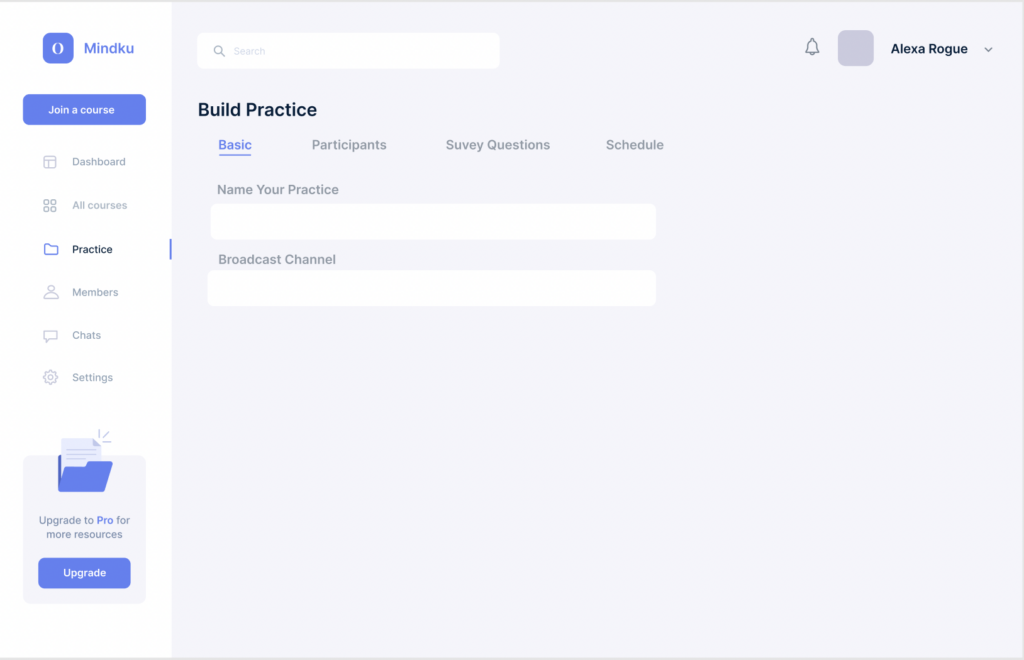
We released the final version of MVP that allowed the client to invite early adopters for testing to validate the idea. It didn’t have a sophisticated design but could solve the main goal of an app: to schedule and hold online meditations in teams.
After finishing all the tasks, we had a final call where we gathered feedback from the client. We were glad to know that we met the client’s expectations and they wanted to continue our partnership.
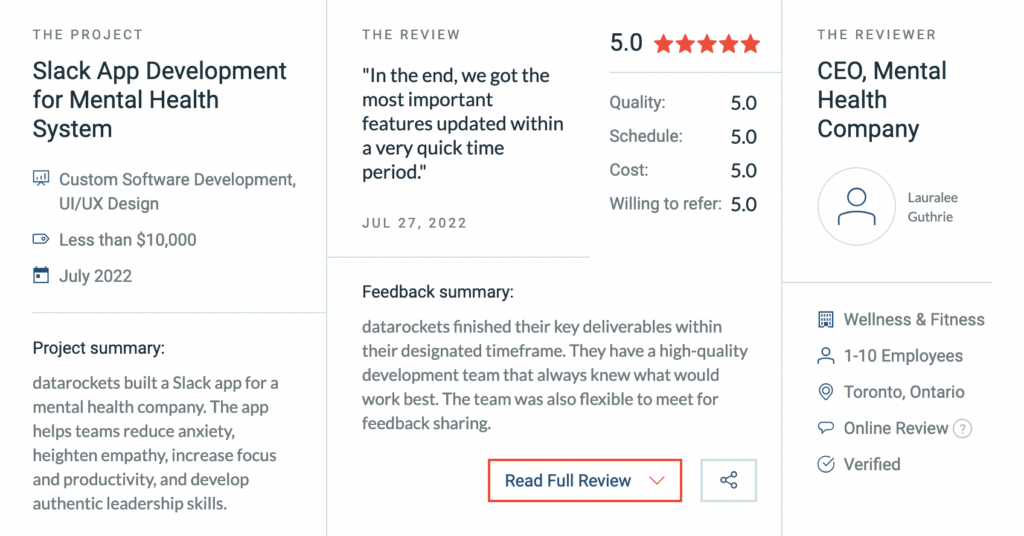
In just 5 weeks, the datarockets team built an MVP of a meditation platform with an admin panel.
In the web app, we developed such features as rooms for meditations with a panel of active participants, a scheduling system for practices, and the ability to create courses. Besides, we integrated our app with Slack which allows teams to receive invites to upcoming sessions and see who has already joined it.
At the moment, the platform is being tested by other companies, and we are keeping in touch with the client about the results of the MVP launch and future iterations.
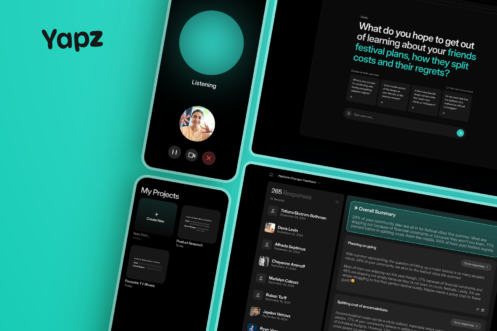
AI, Web | 02. 28. 2025
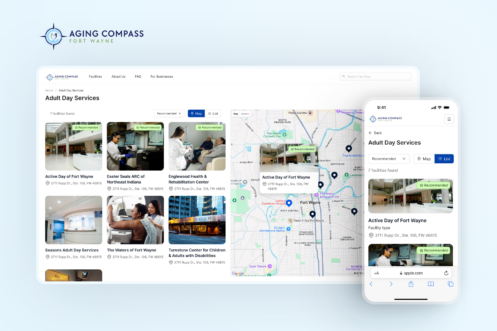
Design, Ruby, Web | 01. 30. 2025
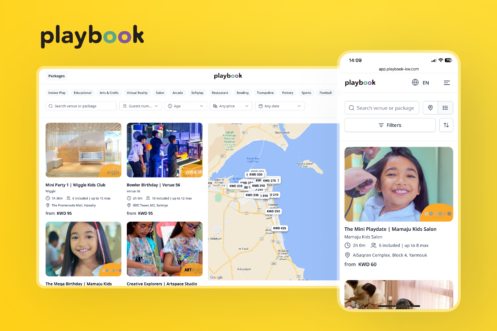
Design, Ruby, Web | 01. 13. 2025
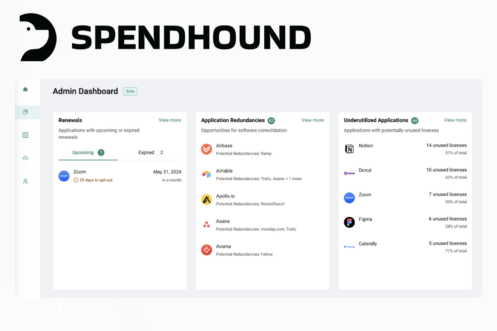
Design, Ruby, SaaS, Web | 08. 12. 2024
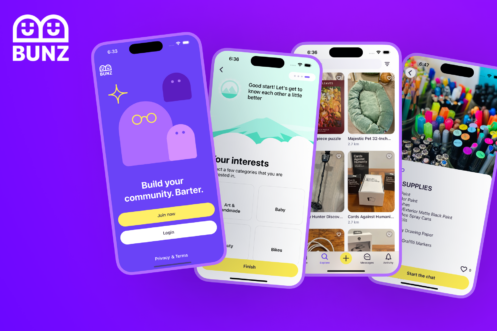
Mobile, Node.js, Web | 06. 10. 2024
© 2024 Red Panda Technology (dba datarockets). All Rights Reserved.